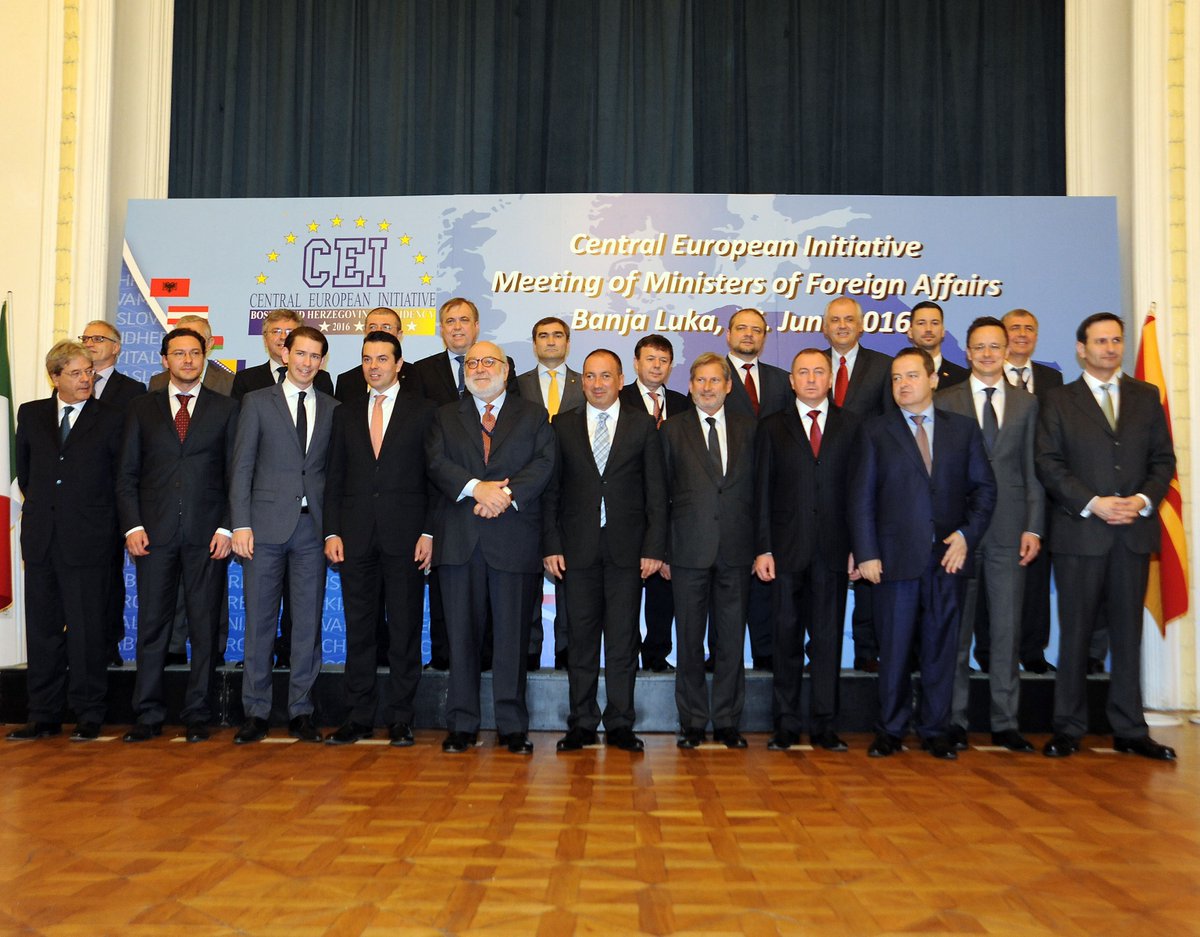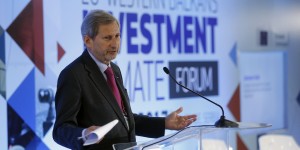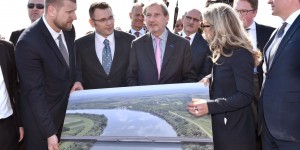Banja Luka, 16 June 2016
*Check against delivery!*
Ministers, distinguished guests,
I am very happy to see you all here today in a different setting but on important issues which are crucial for this region as well for the European Union.
Co-operation is at the Heart of the European Union and is key for peace and stability and economic prosperity.
Today, I am glad that we have extended this approach to our neighbours, and in particular to this region.
There are differences, but in both policies the fundamentals are the same: co-operation to achieve mutually desirable goals. I would even narrow it down to one goal which is: stabilising our common neighbourhood.
Ladies and gentlemen,
Let me begin by thanking the Central European Initiative and the current chair to organise this important event. You know that we are heading towards Paris to our third connectivity summit which will focus on transport, energy, youth.
Let me give you a snapshot where we stand in the fields of regional cooperation and EU integration.
I strongly believe that building and connecting transport and energy infrastructure is a key to reinforcing integration among the Western Balkans and with the EU, thus driving forward their European perspective through concrete projects.
This means focusing investments on establishing and improving transport and energy infrastructure and networks, to strengthen the economies’ backbone of competitiveness.
Mutual interest in building a region of stability
These projects create opportunities for businesses and citizens, and also contribute to building bridges in the region developing good neighbourly relations and promoting reconciliation and stability. It is important to remember that it is in both the EU’s and Western Balkans’ mutual interest to build a region of stability, reciprocal trust, and prosperous economies, which will boost investments and trade.
There is another clear lesson here. Investments without reforms make little sense. For this the Western Balkans Governments have therefore agreed a number of specific energy and transport reform measures which would provide added value to the investment priorities.
Such reforms are never easy but are required for keeping the credibility of the Berlin process and the positive momentum on regional cooperation.
Progress on the soft measures is also essential for our ability to continue providing our generous funding for the Connectivity Agenda – we have already pledged up to 1 billion Euro over the current financial perspective.
The Berlin process has a particular focus, both geographic and in terms of the intensity of the work to be carried out. However, there are other much broader examples of co-operation which touch the members of the Central European Initiative.
The set-up of the “EU Strategy for the Danube Region” and the “EU Strategy for the Adriatic and Ionian Region” which I particularly focussed on in my previous mandate show how far the regions have developed. EU member states and non EU members participate in both strategies and are equal partners in coordinating their economic development.
These strategies also underline the decision of the EU member states and non EU participants to take a step further by coordinating their national policies in order to reach the proposed objectives of promoting sustainable economic and social prosperity of the two regions.
It is important to recall that the implementation of the EU Strategies is, and will always be, under the ownership and full responsibility of the participants with the European Commission acting as a facilitator of the entire process.
The Central European Initiative has played a significant role in promoting this ownership.
Of course, the Connectivity Agenda and regional cooperation must be looked at in the broader context of relations between the non EU Central European Initiative members and the EU.
As I mentioned there are differences between our enlargement and neighbourhood polices but there are a great many similarities and they are based on the same fundamentals.
In this regard I would like to underline that the rule of law, which includes judicial reforms, tackling organised crime and corruption as well as fundamental rights are the other side of the same coin.
Fundamentals supporting investment
Rule of law, in particular legal certainty and a functioning judicial system, foster investments, trade and economic growth. Equally, economic reforms have the capacity to stabilise countries in the longer term.
Refugee crisis calls for more solidarity and responsibility
The current refugee crisis is a litmus test for the European Union but also for this region and put regional co-operation to the test.
In that context I welcome the activities of The Central European Initiative in bringing expertise from around the region together to discuss and share experience in migration and human trafficking.
On our side, we have invested a lot of efforts to support countries bearing the heaviest burden of the refugee crisis linked to the continuing Syrian conflict and we will continue to do so.
The Western Balkan/Eastern Mediterranean route is closed and contributed together with the EU-Turkey agreement to manage the migration pressure.
But the migration situation in Libya and Egypt is of increasing concern with potential negative spill overs.
That is why, in addition to the Facility for Refugees in Turkey, the EU Trust Fund for the Syrian crisis and the Compacts under preparation with Jordan and Lebanon are such important tools.
The Africa Trust Fund is also up and running now. It addresses the root causes of migration in countries of origin of sub-Saharan Africa.
Overall, our assistance to better manage migration flows is aimed at saving the lives of migrants and refugees and tackling irregular migration and trafficking.
I look forward to the continued commitment of the Central European Initiative to deepening our cooperation on this and other major issues across the region.
Thank you.




